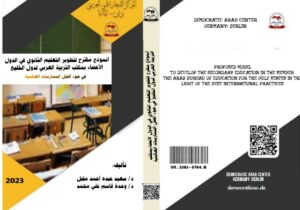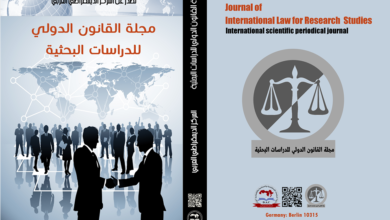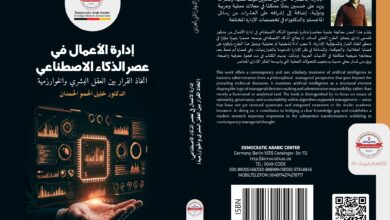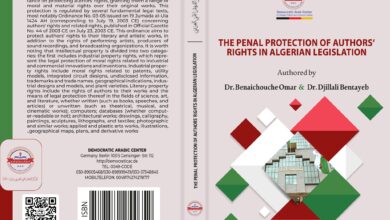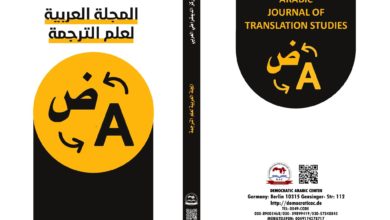أنموذج مقترح لتطوير التعليم الثانوي في الدول الأعضاء بمكتب التربية العربي لدول الخليج في ضوء أفضل الممارسات العالمية
Proposed Model To develop the secondary education in the member The Arab Bureau of Education for the Gulf States In the light of the best international practices
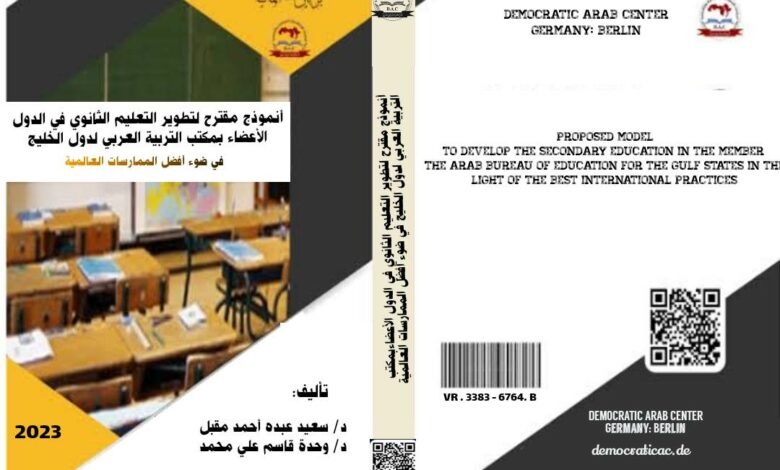
تألبف : –
- د. سعيد عبده أحمد مقبل – نائب رئيس المركز سابقا ورئيس دائرة مناهج العلوم الإنسانية – واللغات -مركز البحوث والتطوير التربوي
- د. وحدة قاسم علي محمد – رئيس المكتب الفني-مركز البحوث والتطوير التربوي
نسخة “pdf”-
الطبعة الأولى “2023″ –من كتاب: –
أنموذج مقترح لتطوير التعليم الثانوي في الدول الأعضاء بمكتب التربية العربي لدول الخليج في ضوء أفضل الممارسات العالمية
جميع حقوق الطبع محفوظة #المركز_الديمقراطي_العربي ولا يسمح بإعادة إصدار هذا الكتاب أو اي جزء منه أو تخزينه في نطاق إستعادة المعلومات أو نقله بأي شكل من الأشكال، دون إذن مسبق خطي من الناشر .
تقديم :
هدفت الدراسة إلى تقديم أنموذج مقترح لتطوير التعليم الثانوي في الدول الأعضاء بمكتب التربية العربي لدول الخليج في ضوء أفضل الممارسات العالمية. واستخدم الباحثان المنهج الوصفي ذات النمط المسحي-أسلوب التحليل الوثائقي المقارن، لتحليل الوثائق وأدبيات التعليم الثانوي – المتوافرة للباحثين-الخاصة بالدول المرجعية والدول الأعضاء، والمقارنة بينهما؛ لمعرفة أوجه الشبة والاختلاف، وتوصلت الدراسة إلى جملة من النتائج والاستنتاجات التي ساعدت على تقديم أنموذج مقترح لتطوير التعليم الثانوي في الدول الأعضاء، الذي يتبنى جملة من الإجراءات التطويرية، منها:
- -أن تشرف وزارة واحدة” وزارة التعليم” على قطاع التعليم والتدريب.
- – إعادة هيكلة المرحلة الثانوية بحيث تتكون من أربعة صفوف(9-12).
- – ينظم الزمن الدراسي في التعليم الثانوي، بحيث تكون عدد أيام العام الدراسي 195 يومًا دراسيًا، موزعة على ثلاثة فصول دراسية.
- – تطوير أهداف التعليم الثانوي بحيث تؤدي إلى تنمية شخصية المتعلم وإكسابه الكفايات الأساسية والعرضانية واستثمارها في تعلمه اللاحق، أو الاندماج في الحياة العملية.
- – توحيد البنية الأساسية لوثائق: إطار المنهاج، مناهج المواد، والمواد التعليمية الورقية والإلكترونية، وفي طرائق إعدادها.
- – تطوير مناهج التعليم الثانوي وفق المعايير العالمية، مع الأخذ بعين الاعتبار: التعامل مع تطورات العالم الرقمي في التعلم والتدريس، وخلو المناهج من التمييز، والتعصب أيًا كان نوعه. – تنويع مسارات التعليم الثانوي بحيث تؤدي إلى نمو شخصية المتعلم بشكل متكامل، وتجسر الترابط بين التعليم العام والفني، وبينهما والتعليم الجامعي، أو سوق العمل.
- – تطوير برامج إعداد معلمي التعليم الثانوي في كليات التربية بشكل تكاملي، وتنميتهم بشكل مستمر للتعامل والتكيف مع المستجدات ونقلها للطلبة.
- – إعداد خطة للمواءمة بين البرامج التخصصية التي تقدمها كليات التربية لإعداد الطالب/المعلم، والمناهج والكتب المدرسية التي يتم تدريسها في مدارس التعليم الثانوي، وفق النظام القائم على الكفايات.
- – تطوير شهادة الثانوية العامة بحيث تتضمن تفاصيل عن نتائج امتحان الثانوية العامة والتقييمات المدرسية من خلال نظام التقارير المعيارية التي يوضح فيها الإنجازات الأكاديمية وغير الأكاديمية والصفات الشخصية.
وقد توصلت الدراسة إلى جملة من التوصيات، أهمها: تطوير نظام التعليم الثانوي وإدخال التعديلات عليه بالاستناد على الأنموذج التطويري للدراسة، بحيث يتم العمل على تجسير الفجوة التعليمية بين الدول الأعضاء في مكتب التربية العربي لدول الخليج في القضايا الرئيسة الآتية:
- -هيكلية نظام التعليم.
- – تنظيم الزمن الدراسي.
- – الأهداف العامة.
- – بنية الإطار الوطني للمنهاج. بنية وثيقة المنهاج. بنية الكتب المدرسية ودلائل المعلمين.
- – مسارات التعليم الثانوي.
- – التقييم والاختبارات، ومنح الشهادات.
Abstract
The study aimed at presenting a model to develop the secondary school education in the member countries the Arab Bureau of Education for the Gulf States on the light of the best international practices. Both researchers used the descriptive method with the surveying pattern – style of comparative documentary analysis, to analyze the documents and literature of the secondary education – which are available for the researchers – concerning the referential countries and the member countries, and comparing them in order to identify the similarities and differences.
The study reached some results and conclusions, which helped in presenting a proposed model to develop the secondary education in the member countries, which adopt some of developing procedures, including:
- One ministry “Ministry of Education” to supervise on the training and teaching sector.
- restructure the secondary cycle to consist of four grades (9-12)
- The school time in the secondary school education to be organized so that the school year to have 195 school days, distributed on three semesters.
- Secondary school education objectives to be developed so as to result in improving the learner personality and providing the learner the fundamental and competencies that to be invested in the later learning or integrating in the practical live.
- To unify the essential structure of the documents: curriculum framework, subjects’ curriculum, electronic and paper learning materials, their preparation methods.
- To develop the curriculum of the secondary school education according to the international standards, taking into consideration: dealing with the digital world developments in learning and teaching, the curriculum to be devoid of discrimination or fanaticism irrespective of its kind.
- To vary the paths of secondary education so as to result in promoting the personality of the learner completely, and bridging the correlation between the technical and vocational education on one hand and the university education on the other hand or the work market.
- To develop the programs of preparing the secondary school teachers in the faculties of education integrally and constantly improve them to deal and cope with the new developments and pass them on to the students.
- To prepare a plan fit for the specialized programs introduced by the faculties of education in order to prepare the student / teacher, and the curriculum and the school textbooks that are taught in the secondary schools according to the system based on the competences.
- To develop the secondary school certificate to include details on the results of the general secondary school exam and the school evaluations through the standard reports system that demonstrate the academic and non-academic achievements and the personal characteristics.
The study reached some recommendations, most importantly are the following:
- To develop the system of secondary school education and incorporate the modifications based on the developmental model of the study so as to work on bridging the educational gap between the member countries of the Arab Bureau of Education for the in the Gulf State pertaining the following primary (essentional) issues:
- Structuring the educational system.
- Organizing the school time.
- General aims.
- Structure of national framework of curriculum.
- Structure of curriculum document.
- Structure of school textbooks and teachers guidebooks.
- Paths of secondary school educational.
- Evaluation and tests, and granting certificates.
- الناشر: المركز الديمقراطي العربي للدراسات الإستراتيجية والسياسية والاقتصادية

